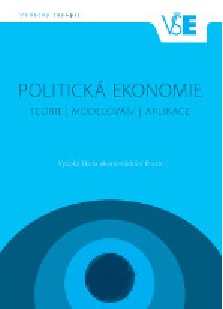Kaldor-Hicks Improvement and Justice: To the Discussion on Normative Economics
Kaldor-Hicks Improvement and Justice: To the Discussion on Normative Economics
Author(s): Lukáš Augustin MásloSubject(s): Micro-Economics, Ethics / Practical Philosophy, Business Ethics
Published by: Vysoká škola ekonomická v Praze
Keywords: Kaldor-Hicks improvement; Pareto improvement; normative economics; equality in exchange; usury; just price;
Summary/Abstract: The author’s main objective is to point out the existence ofthe paradox ofinvoluntary improvement and to present a solution to this paradox. The paradox of involuntary improvement appears when a subject which suffers an injustice involuntarily still gets better off by this change. The suggested solution consists in the decomposition of the total effect of the pseudo-contract into the effect of the basic contract (which is desirable for the subject) and the effect of the super-contract (which is undesirable for the subject). Such a decomposition is not arbitrary, in the author’s view, but necessary because it reflects the self-contradictory nature of the pseudo-contract, such as usury and sale/purchase at an unjust price. The author argues that the contract of usury and sale/purchase at an unjust price do not represent cases of Pareto improvement but rather cases of Kaldor-Hicks improvement (Kaldor, 1939; Hicks, 1939). The author’s complementary objective is to show that the positive – normative dichotomy is an artificially created distinction which is supposed to cut off economics from its mother discipline, philosophy, and which moral sceptics used to deprive moral philosophy of the status of science.
Journal: Politická ekonomie
- Issue Year: 71/2023
- Issue No: 5
- Page Range: 518-535
- Page Count: 18
- Language: English

